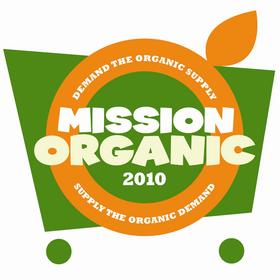Contact Information: Media Contact: Amy Summers 727-848-1618 ext. 202 Email Contact Pitch Inc.
Marketing Gimmick or More Value?
Certified Organic Is Better Any Way You Slice It
| Source: The Organic Center
FOSTER, RI -- (MARKET WIRE) -- October 17, 2006 -- As certified organic products make their way
into the marketplace, more critics emerge about the health benefits of
organic.
"Bottom line, organic is better for all people and our planet," says
Anthony Zolezzi, chairman of the board of The Organic Center and author of,
"Chemical-Free Kids," (Kensington). "Whether you choose to eat healthy or
not, purchasing certified organic products makes a huge impact on the
environment and your personal health."
Consumers typically do pay a premium for organic food, but when they choose
organic, they also get more nutritional value for their dollar -- and more
nutrients per calorie consumed. The higher levels of antioxidants in
organic foods, in particular, are powerful allies in promoting healthy
immune systems, and in avoiding disease and damage to cells caused, or made
worse, by inflammation, according to The Organic Center's state of science
review, "Elevating Antioxidant Intakes."
Zolezzi says those are just some of the benefits that come with eating
organic, but adds that whether you choose to eat healthy or not, purchasing
certified organic products helps eliminate the use of growth hormones,
genetically engineered drugs and feeds and reduces the amount of pesticides
going into drinking water.
For example, conventionally grown fruits and vegetables are four times more
likely to contain pesticide residues compared to organic produce. A study,
conducted this year, involving 23 school-aged children showed they all
tested positive for exposure to one of the riskiest class of insecticides
called organophosphates (OP) after consuming conventional foods. After the
children switched to organic sources of the same foods for just five days,
levels of OP insecticides had virtually disappeared. After just three days
back on conventional foods, OP levels went right back up to their pre-study
numbers.
"Every time you make a food purchase you are basically voting with your
dollars," Zolezzi says. "Organic can no longer be a small movement. If we
want to reap the real benefits of organic, we are going to have to produce
more of it. The products that do carry the U.S. Department of Agriculture
(USDA) certified organic seal, are doing the right thing and are heavily
regulated."
Zolezzi is hopeful that organic food consumption will expand from its
current 2 percent to 10 percent. To help further the cause, The Organic
Center launched "Mission Organic 2010" to educate Americans about the
benefits of eating organic and how they can make a difference by just
making 10 percent of their food choices organic. The goal of Mission
Organic 2010 is to increase organic food consumption to 10 percent of the
U.S. Food supply by the year 2010. Consumers can join Mission Organic 2010
and receive a free organic starter kit including scientific facts on the
health benefits of organic food at http://www.MO2010.org.
Zolezzi says increasing organic consumption to 10 percent will have
significant effects including eliminating synthetic pesticides from about
98 million servings of drinking water per day across the United States and
assure 53 million servings of fruits and vegetables per day are free of
synthetic pesticide residues.
